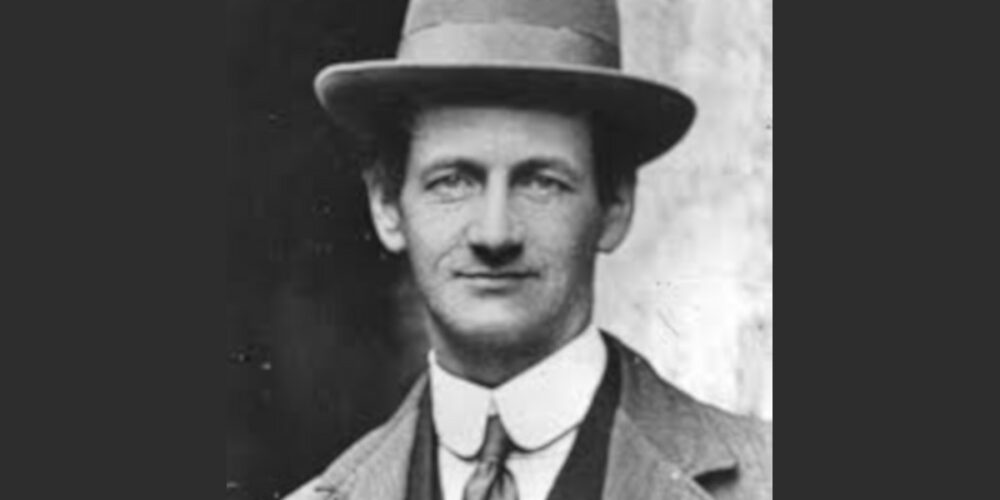The death of Terence MacSwiney on hunger strike, after seventy-four days, was not the first nor the last of that of Irish martyrs who died because of the intransigence of British imperialism. Originally a tactic used by suffragists, the hunger strike has become synonymous with Irish anti-imperialism, in part thanks to MacSwiney.
Thomas Ashe died on hunger strike in 1917, the first but far from the last Irish republican to die on hunger strike in the twentieth century, with others dying during the revolutionary and counter-revolutionary period.
Seán McCaughey died in 1946 under the de Valera government. Frank Stagg and Michael Gaughan died in the 1970s. Their cases, along with that of the Price sisters, showed the inhumanity of forcible feeding. The use of the hunger strike would be revived in 1980 in Long Kesh prison and again in 1981, leading to the death of seven IRA and three INLA prisoners. In the years after MacSwiney’s death his example would be the inspiration for others.
Born in Cork, MacSwiney was raised by his English mother, who had nationalist sympathies. He attended the North Mon secondary school—which the CPI’s own Michael O’Riordan would attend some years later and who had been aware of the famous past pupil.
MacSwiney would become a leading organiser for the republican movement in Cork, being commandant of Cork No. 1 Brigade of the IRA. He would subsequently become mayor of Cork after his comrade Tomás Mac Curtain was murdered by British forces. During his acceptance speech as mayor of Cork he made an often-quoted remark: “This contest of ours is not on our side a rivalry of vengeance but one of endurance—it is not they who can inflict the most but those who can endure the most who will conquer.”
In the collection of his writings titled Principles of Freedom we get an understanding of MacSwiney’s views. Not only did he strongly oppose the Catholic Hibernians, he also had an understanding of basic internationalism. “If Ireland were to win freedom by helping directly or indirectly to crush another people, she would earn the execration she has herself poured out on tyranny for ages . . . It is love of country that inspires us, not hate of the enemy . . . Separation from England will alone make for final friendship with England.”
Though his time on hunger strike attracted international attention, MacSwiney was not—as some revisionist historians claim—interested in being a martyr. He once wrote that “it is harder to live a consistent life than die a brave death . . . We must get men to realise that to live is as daring as to die.”
While much else could be cherry-picked from Principles of Freedom, it is worth reading in full, rather than quoted. MacSwiney’s writing reflects an emphasis on the mental steel of a revolutionary; but this shouldn’t be taken to indicate a zealot. MacSwiney had an understanding of the world around him and attempted to understand it through the means available to him—enough to write that “the capitalist has no country.”
He was predeceased by another Cork comrade, Michael Fitzgerald, and within a few hours of MacSwiney’s own death Joe Murphy would die. The month after MacSwiney’s death, in October, would see some of the major events of the revolutionary period, including the hanging of Kevin Barry, the killing of several British agents by Michael Collins’s “Squad,” and the murder of fourteen people in Croke Park by the RIC. Later on, the Kilmichael ambush would destroy the myth of the invincibility of the Auxiliaries, leading to the burning of Cork city centre and the brutal torture and murder of the Loughnane brothers.
MacSwiney had gone on hunger strike in Brixton Prison, London, as he felt that his two-year sentence for possession of a document was inflicted by the authorities of an empire that, in the words of James Connolly, “has no right in Ireland, never had any right in Ireland, and never can have any right in Ireland.” In doing so he would provide inspiration for other revolutionaries, and not only in Ireland. He inspired a Chinese revolutionary, Guo Moruo—who would become a close ally of Mao Zedong and be the head of the Chinese Academy of Sciences after 1949—as well as Indian patriots.
MacSwiney’s widow, Muriel, would leave Ireland for Germany and then Paris, where she would become a communist, being at various times a member of the Communist Parties of France, Germany and Britain as well as Larkin’s Irish Worker League. She married a French Jewish leftist, Pierre Kaan, who would die in a German concentration camp.
The Vietnamese revolutionary leader Ho Chi Minh remarked of MacSwiney’s example that “a nation that has such citizens will never surrender.”






